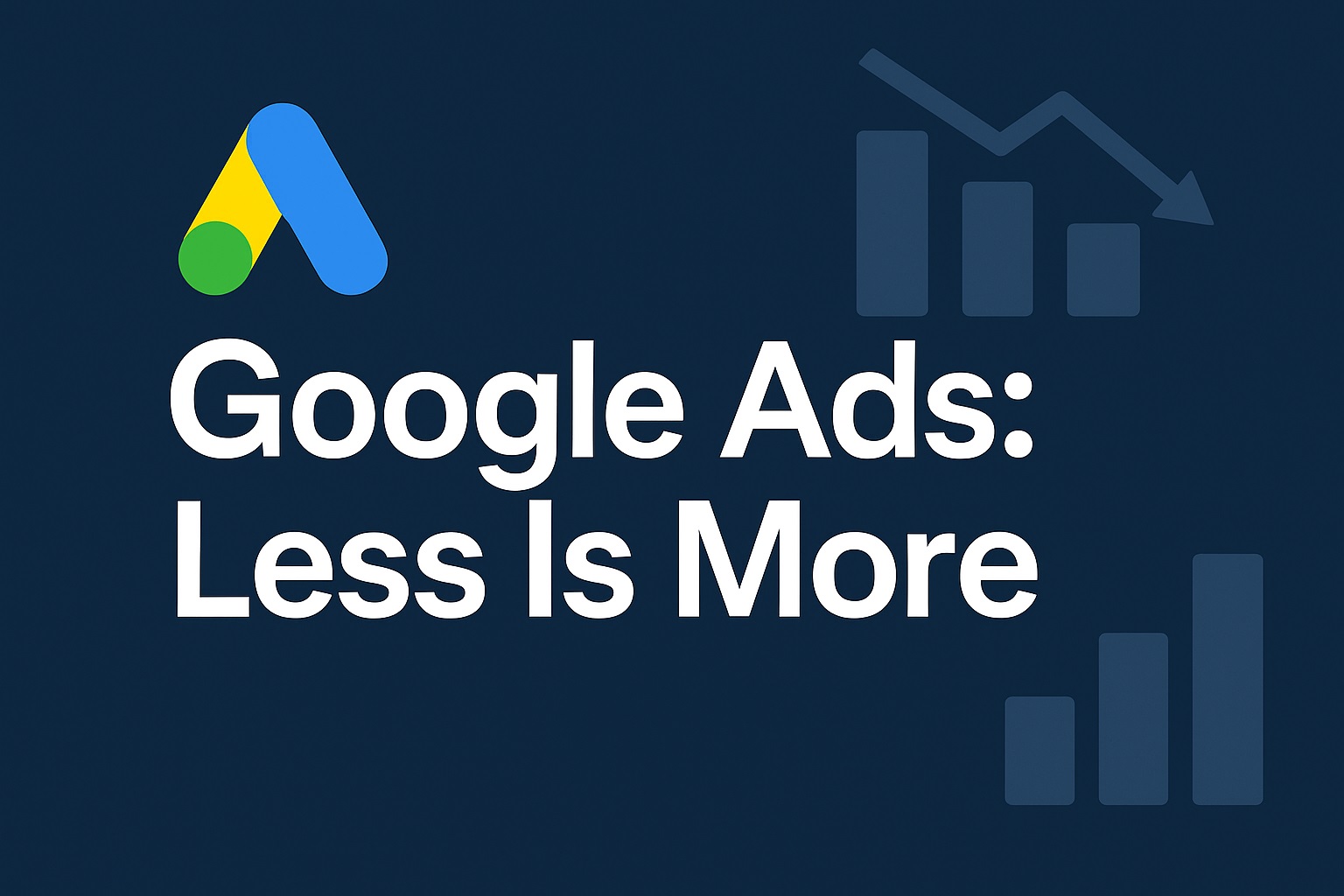Here’s a strange discovery I recently made with Google Ads. One that’s a little hard to believe.
When it comes to budgets, lower budgets seem to produce better results.
And I’m not talking just about wastage due to overspend, difficulty in managing high-budget accounts, or anything like that.
I mean, Google’s bidding algorithm just plain delivers the goods, better, when it has less budget to work with.
Sound strange? So far in two tests it’s been true.
Here’s what we did.
We tested two campaign groups for different clients.
In both cases, we cut campaign budgets by roughly 50% (we aimed for 50, but Google has a tendency to overbid).
In both cases, the main metrics we monitor could be said to have improved: Conversions per budget allocation and Cost per conversion.
Namely, conversions did not drop proportionately to the spend decreased and even rose in the other group.
Cost per conversion? Also dropped significantly in both.
Here are the results:
Campaign Group 1:
⬇ 48% budget
⬇ 46% cost per conversion
⬇ 8% conversions
Campaign Group 2:
⬇ 46% budget
⬇ 54% cost per conversion
⬆ 19% conversions
Why?
One major reason was what appeared to be going on in our search terms.
When the budgets were higher, Google was going for broader and broader matches, and sometimes paying exhorbitant costs per click for what were basically worthless clicks.
When the budgets dropped, it became more reserves, and we were seeing better prices for clicks, and more relevant traffic.
What this tells me is that larger budgets allow Google to cut loose while smaller budgets force Google to focus.
When it has daily budgets up around $80-120 per day per campaign, it had less of an issue going after clicks that were $30, $40 or even higher – when our usual CPC for both rarely broke $10 a click.
This also seems to be tied to the way Google uses signals to match intent with clicks, all with the aim of generating conversions.
I suspect Google wants to make a viable use case for every account, so with a lower budget it only fights for the low hanging fruit and can’t afford to take wild risks with low relevance keywords.
The most surprising part here, however, is clearly case 2 where our conversions went up.
In other words, Google wasn’t just playing it loose with the larger budget, it was mostly just generating pricey junk.
The moment we slashed, we stopped seeing those wild pricey (and weirdly matched) clicks. It just focused.
Takeaways
Obviously, when it comes to ad budgets that sometimes, less is more.
While we’d love to live in a world where we can predictably scale up ad spend and get consistent results, that’s clearly not the case.
While I would love to chalk it all up to the algorithm and bidding AI misbehaving, it’s entirely possible it’s by design.
Google is, at the end of the day, a business – and not just that, but one that has a monopoly on what have become essential marketing tools that businesses everywhere rely on.
This wouldn’t be the first case of Google clearly cutting corners recently, nor certainly the last, just to increase their bottom line.
So, while we’re all waiting anxiously to see how the antitrust cases against Google go, and the possibility of alternatives for our advertising, why not check if you’re also overspending on your ads?
Or better yet, ask us to do it for you 😉


